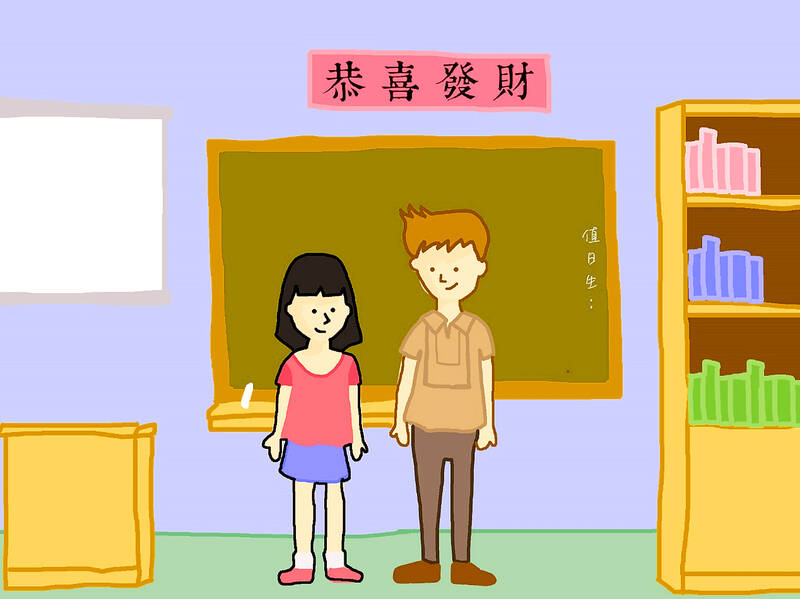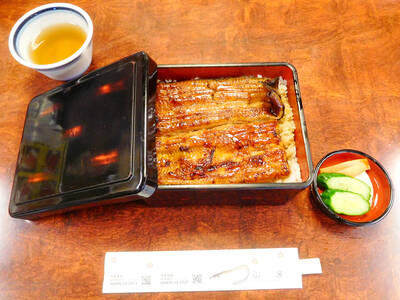對話 Dialogue
馬克:你好!你叫什麼名字?
Make: Nǐ hǎo! Nǐ jiào shénme míngzi?

小實:我叫小實,你呢?
Xiaoshi: Wǒ jiào Xiǎoshí, nǐ ne?
馬克:我叫馬克。
Make: Wǒ jiào Mǎkè.
小實:馬克,你是美國人嗎?
Xiaoshi: Mǎkè, nǐ shì Měiguó rén ma?
馬克:我是美國人,你也是美國人嗎?
Make: Wǒ shì Měiguó rén, nǐ yěshì Měiguó rén ma?
小實:不是,我是臺灣人。很高興認識你。
Xiaoshi: Búshì, wǒ shì Táiwān rén. Hěn gāoxìng rènshì nǐ.
馬克:我也很高興認識你。
Make: Wǒ yě hěn gāoxìng rènshì nǐ.
翻譯 Translation
Mark: Hello! What’s your name?
Xiaoshi: My name is Xiaoshi, and you?
Mark: My name is Mark.
Xiaoshi: Mark, are you American?
Mark: Yes, I am. Are you American too?
Xiaoshi: No, I’m Taiwanese. Nice to meet you.
Mark: Nice to meet you too.
單字片語 Vocabulary
1. 叫(jiào) to be called
2. 什麼 (shénme) what
3. 呢 (ne) a (question) particle
4. 也 (yě) also; too
5. 很高興認識你 (hěn gāoxìng rènshì nǐ) Nice to meet you
教材音檔 Audio Files
實踐大學華語中心提供
By Shih Chien University Chinese Language Center: https://chineseusc.com/

Microsoft on Feb. 28 announced it was retiring Skype, the online voice and video call pioneer that the tech titan acquired in 2011. “Starting in May 2025, Skype will no longer be available,” said a post from Skype support on X, directing users to sign into Microsoft’s Teams platform for further use of its services. Skype was founded in 2003 by Scandinavians Niklas Zennstrom and Janus Friis in Estonia, revolutionizing Internet communication by offering free voice calls between computers and affordable rates for calls to landlines and mobile phones. Over the years, and as Internet speeds improved, Skype evolved to

Donburi, often simply called don, is a beloved Japanese dish that consists of a bowl of steamed rice topped with various other ingredients. The word donburi itself actually means “bowl” in Japanese, but it has come to represent much more than just a vessel. Donburi first emerged during the Edo period (1603–1867) as a quick and convenient meal for busy city dwellers. By the 19th century, donburi had become immensely popular among theater enthusiasts, who often purchased these portable meals to enjoy during long performances. Una-don, a donburi topped with grilled eel, was a particular favorite. Easy-to-carry and satisfying,

People desire a sense of purpose in their lives, but they often remain idle unless they have a clear reason to act. This concept is illustrated by the retirement paradox. People work hard to prepare for a future without work but find life meaningless after achieving that goal. A study was carried out to determine if a reason, even a minor one, could encourage idle people to take action. __1__ Upon finishing the first, they were instructed to drop it off at a location either right outside the room or at a spot farther away, which would take around

Continued from yesterday(延續自昨日) https://www.taipeitimes.com/News/lang Results showed that only 32 percent were willing to walk farther for the same candy, but 59 percent chose to do so when promised different candy. Researchers also discovered that students who walked farther reported feeling happier during the wait. __3__ Idleness aversion can be applied in various settings. For example, Uber uses animations and real-time updates to keep customers from being bored while waiting. It can also be used in the design of office buildings to reduce elevator traffic. During busy times, it takes a while to wait for an elevator. __4__ Recognizing the power